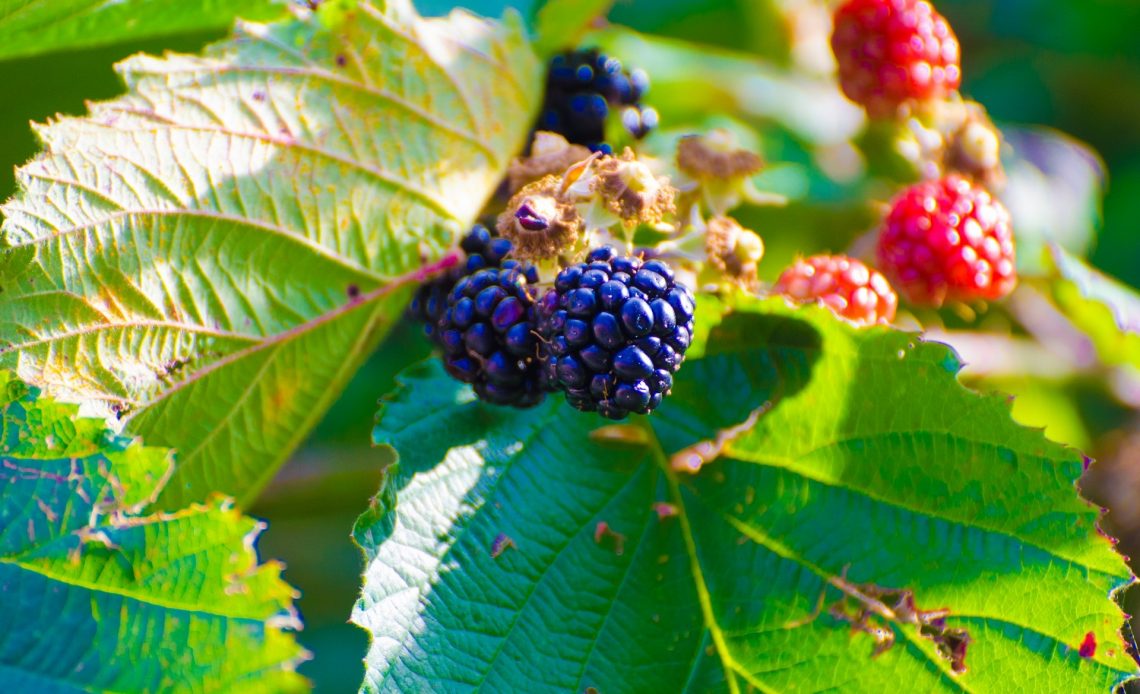

We’re here to help! Wild Yards is a completely free website that is 100% dedicated to helping you create a wildlife-friendly, sustainable yard. Read more
WildYards is reader-supported. When you buy a product through a link on our site, we may earn a comission. Every product is independently selected by our (obsessive) editors and our reviews are unbiased and objective. Read more about our mission or our privacy policy.
Berry picking is a fun outdoor activity that the whole family can enjoy. Plus, growing berries is a great way to get a jump start on the gardening season, as most berries are ready to be harvested in the early weeks of summer. If you’re new to planting berries, blackberries are some of the easiest ones to grow. And these bushes can perform even better when grown with blackberry companion plants.
Some blackberry companion plants, like fruit and oak trees, offer blackberry bushes protection from the sun. Sunflowers, hyssop, beebalm, and borage all work to encourage pollinators to visit your blackberries. And nitrogen-fixing plants, like beans, help support flower and berry production.
What are the benefits of growing blackberry companion plants?
Blackberry bushes produce berries one to two years after planting. Although there’s no way to shorten this process, blackberry companion plants can help support your blackberry bush’s overall health, encouraging them to bloom as soon as they possibly can.
Blackberry companion plants help ward off the insects, birds, and other foragers that like to nibble on the berries themselves. And even though blackberries are self-pollinating, they still benefit from being visited by pollinators, like bees and hummingbirds.
While blackberries can grow in nutrient-deficient soils, they prefer soil that’s full of organic matter and rich in nitrogen. Choosing nitrogen-fixing blackberry companion plants will give them the nutritional building blocks they need to produce more flowers, and therefore, more berries.
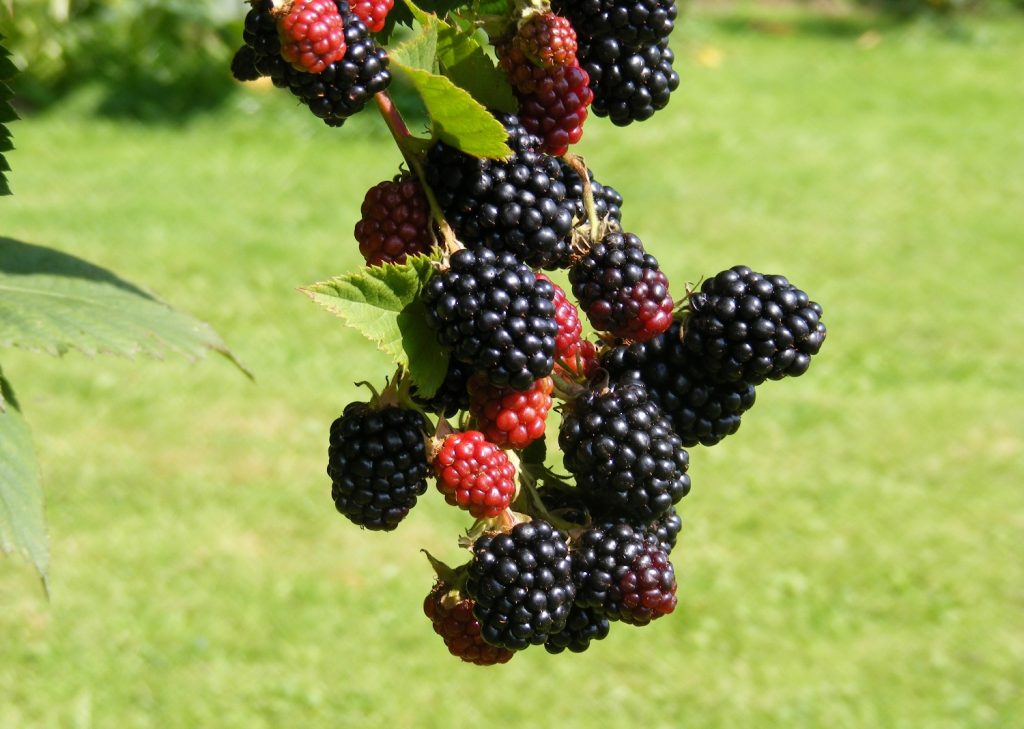
What are the best blackberry companion plants to grow?
There are four types of blackberries: thorny, thornless, erect, and trailing. Whichever type you choose, these plants all require full to partial sunlight, and they perform best in moist but well-drained soil that is neutral to slightly acidic.
When choosing blackberry plants, keep your garden in mind. Do you have enough space for trailing plants or just enough room for an erect bush? If you have lots of wildlife in your region, consider thorny blackberries that help deter hungry foragers from eating their fruits. If wildlife won’t be a problem for you, thornless blackberries are much easier to harvest.
Once you’ve decided on the appropriate blackberry bush for your needs, take a look at companion plants. Keep your garden’s space limitations in mind, as some blackberry companion plants require more room than others.
Fruit trees
The best place to grow blackberries is nestled among fruit trees in a backyard orchard. Blackberries love to grow at the base of apple, cherry, pear, and elderberry trees, where they can enjoy the dappled shade they provide. And because these plants all bloom at roughly the same time (mid to late spring), they can help attract more pollinators to each other.
Fruit trees are deciduous, meaning they drop their leaves in the fall and go dormant over the winter months. Over time, those dead leaves break down, adding valuable nitrogen, potassium, and phosphorus to the soil. Blackberry bushes make good use of these minerals. They help boost flower production, which means more berries for you to harvest.
Oak trees
If you don’t have fruit trees in your yard, but you do have oak trees, your blackberries will grow well under them, too. When planted halfway between the trunk and the dripline, your blackberry bushes will receive a good balance of sunlight and shade. As with fruit trees, your blackberry bushes will enjoy the natural mulch dead oak leaves create, which gives them the potential to produce hundreds of blooms.
Blackberries can help oak trees as well, especially trailing blackberries. These sprawling vines break up the soil beneath your oak trees, making it easier for their roots to grow. All that loose soil also improves aeration and moisture retention, something both of these plants benefit from.
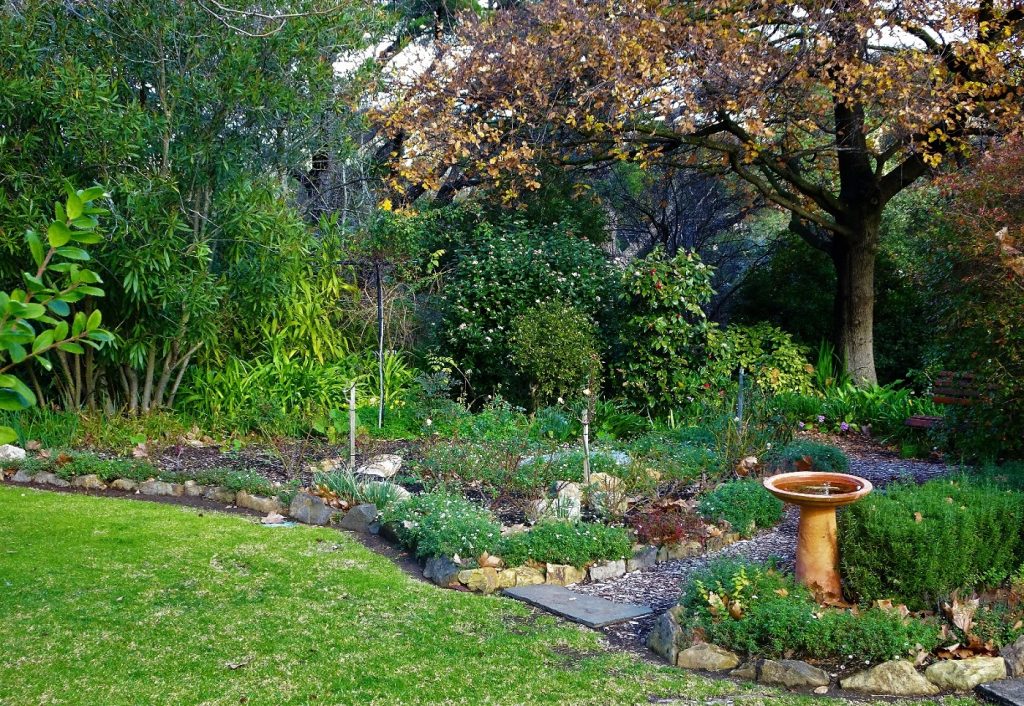
Strawberries
If you have room for both of them, we highly recommend planting strawberry bushes with your blackberry bushes. These plants help protect each other, especially when they’re allowed to grow wild over a broad expanse of land.
Strawberries act as a ground cover, protecting the soil around blackberry plants from erosion and moisture loss. Additionally, these plants both benefit from their shared loss of leaves in the fall months. All of that organic matter helps stimulate the growth of both of these berries during the next season.
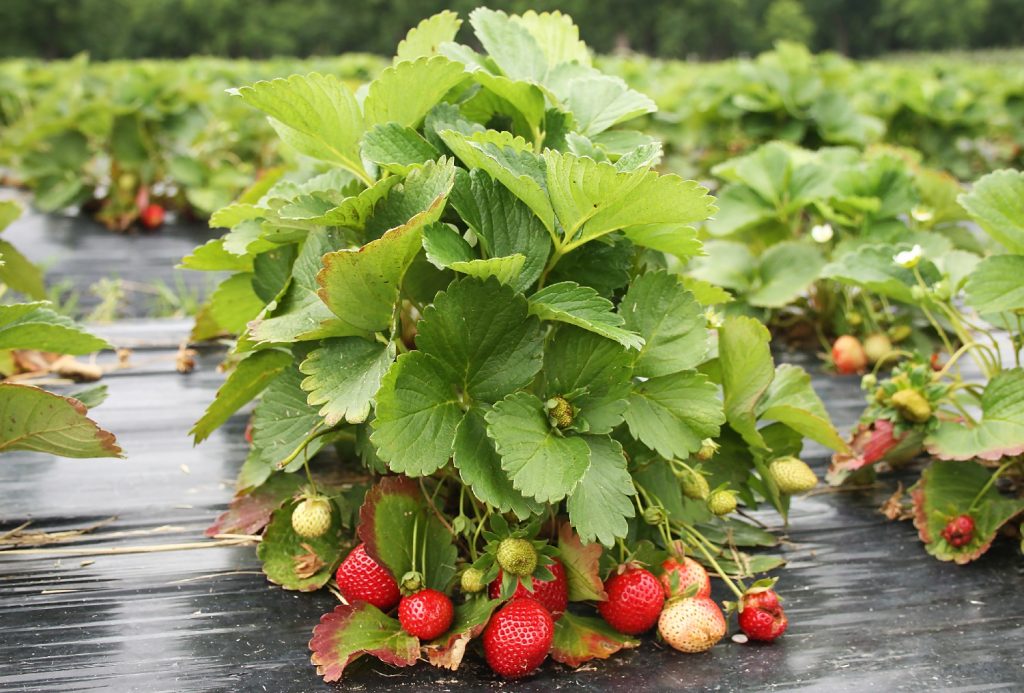
Blueberries
Like blackberries, blueberries also grow well in slightly acidic soil. These hardy plants can handle partial sunlight but they must be watered regularly. And once they start producing fruit, their water requirements increase even more, so they need a good drink at least every other day.
Blackberries and blueberries do not compete for the same nutrients, so they’re safe to grow together. They also share the same pollinators, so growing them together helps boost pollinating rates in both plants.
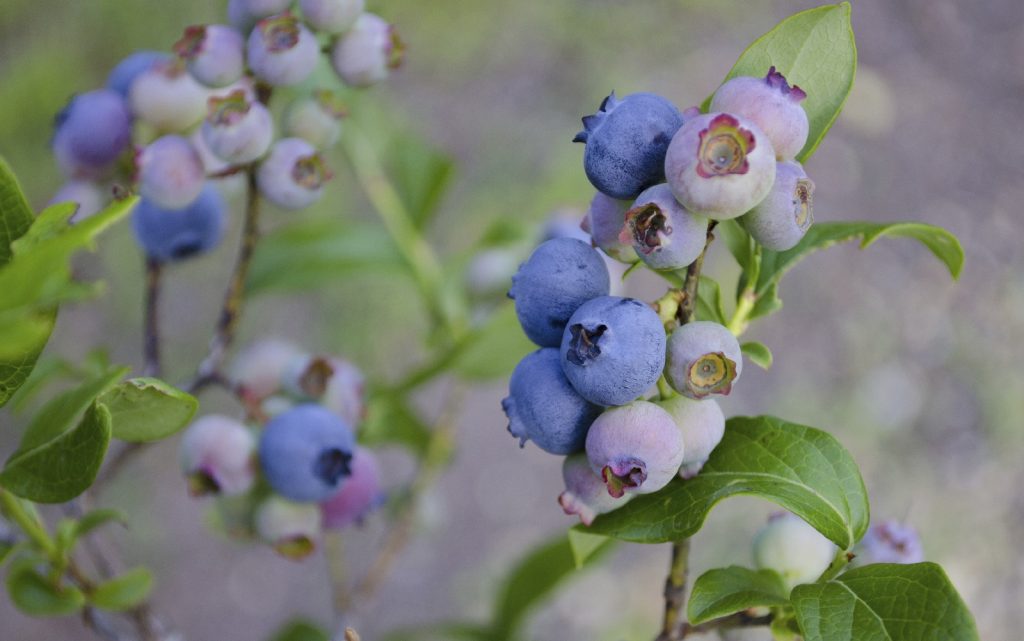
Grapes
While blackberries enjoy growing with grapes, it’s the grapes that benefit the most from this pairing. Blackberries help till up the soil at the base of the grape plant, making it easier for their roots to spread out. Berry plants in general pair so well with grapes that they’re often used as a living mulch to support grape production in vineyards.
Grapes and blackberries are both climbers. They’ll latch onto each other quickly if given the chance, and one may smother the other. So be sure to train at least one of these plants to grow up a trellis to avoid them becoming tangled.
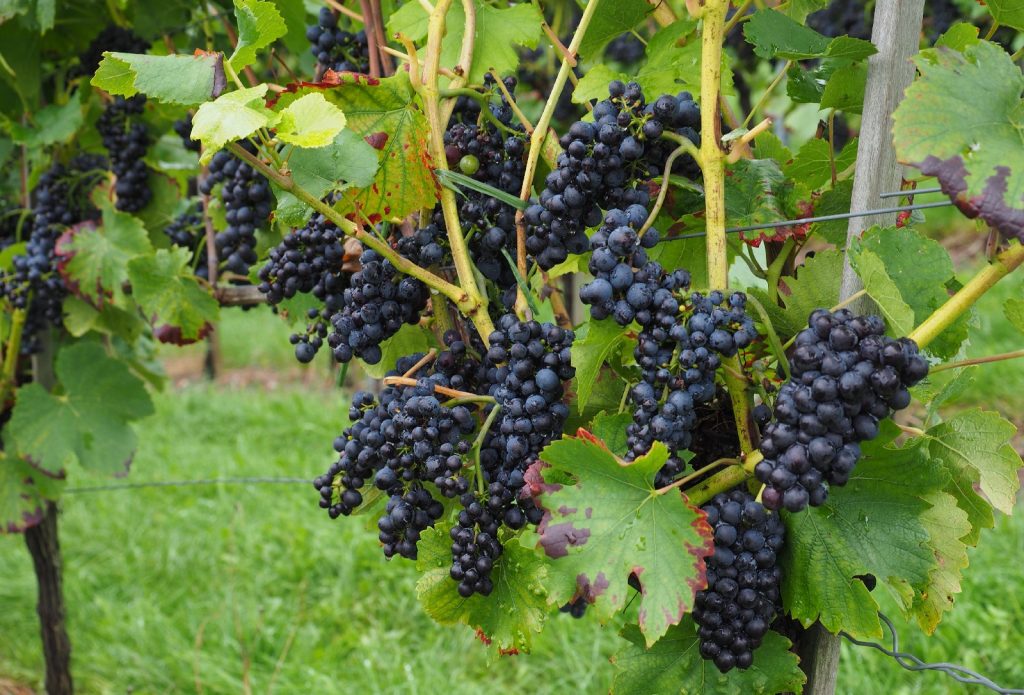
Tansy
Tansy is a nitrogen fixer. It takes the nitrogen that’s already in the soil and turns it into a form of nitrogen that’s easier for plants to utilize. When grown with blackberry bushes, tansy can drastically improve flower production, resulting in more delicious berries for you to use to make pies, jams, and scones.
Tansy is rich in camphor, a smelly compound that confuses insects and repels them. If bugs are devouring your blackberry brambles, growing tansy nearby can help fend them off. Just be sure to keep your pets and children away from tansy, as it is toxic.
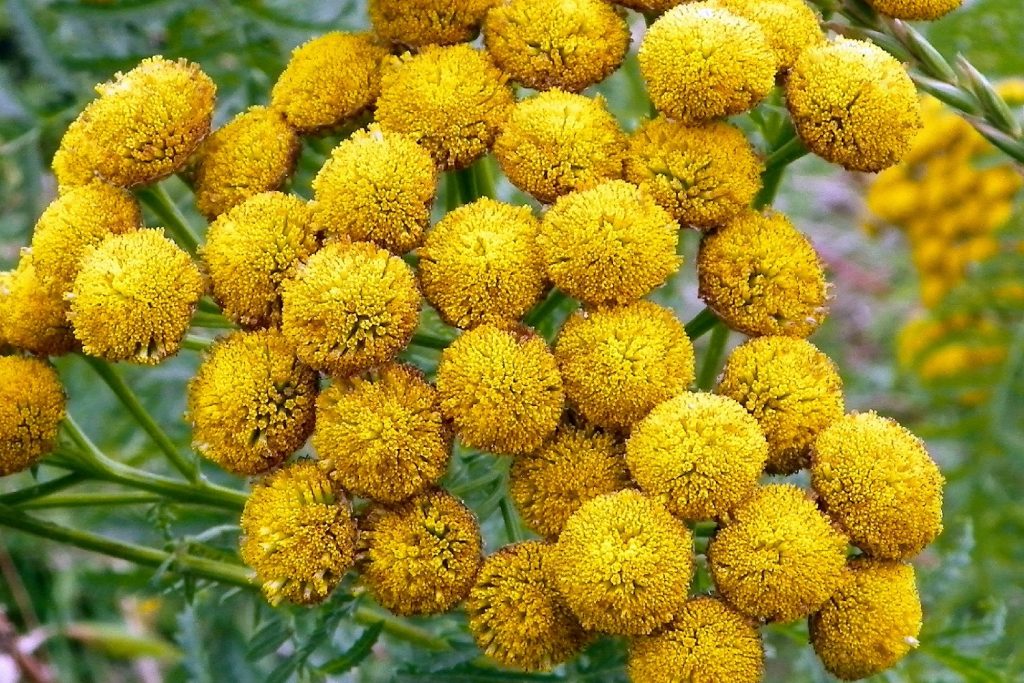
Borage
Also known as starflower, borage produces blue, purple, and white blossoms on tall stalks that tower above low-growing blackberry flowers. Planting borage near your blackberries helps catch the attention of passing bees and hoverflies, so they can pollinate your blackberries and eat the insects that prey on them.
Borage is a common ingredient in many home remedies. This plant can be harvested to produce borage oil, a popular holistic treatment for eczema. Borage is an excellent source of vitamins A and C, as well as B vitamins. And because it’s rich in omega-6 fatty acids, it can help treat dry eyes and arthritis.
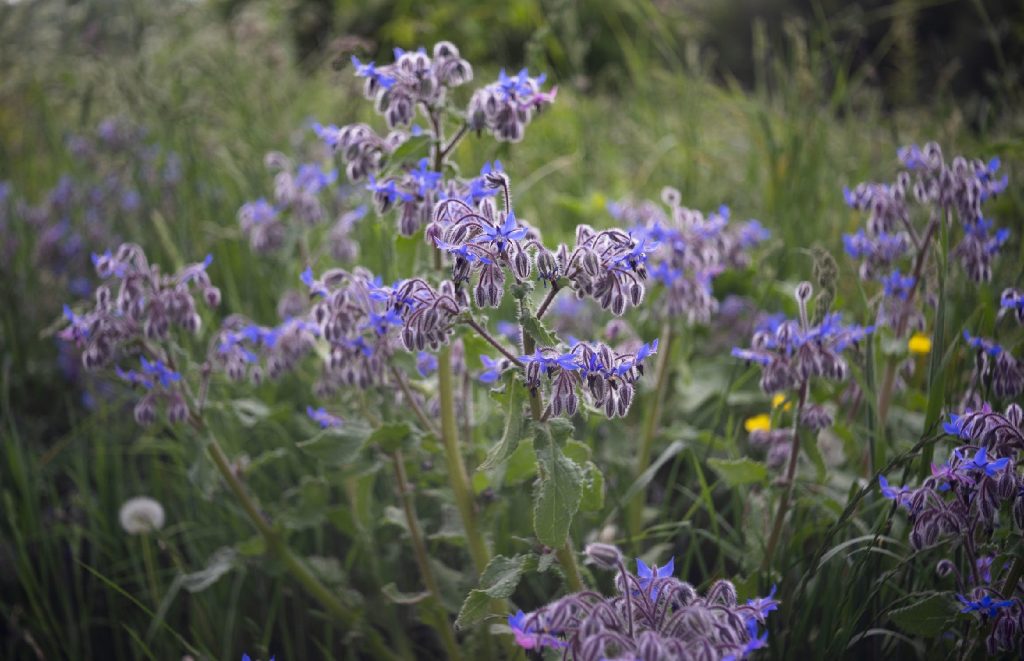
Chives
Blackberry bushes are fairly pest-resistant, but no plant is 100% immune to insects. If aphids, mites, grasshoppers, and other bugs are stripping your blackberry bushes of their foliage and fruits, chives can help put a stop to it.
Chives are members of the allium family, which also includes onions and garlic. All of these plants are rich in sulfur, which works well as a natural pesticide. Growing a border of chives around your blackberry bushes helps deter damaging insects — and rabbits and deer, too, for that matter.
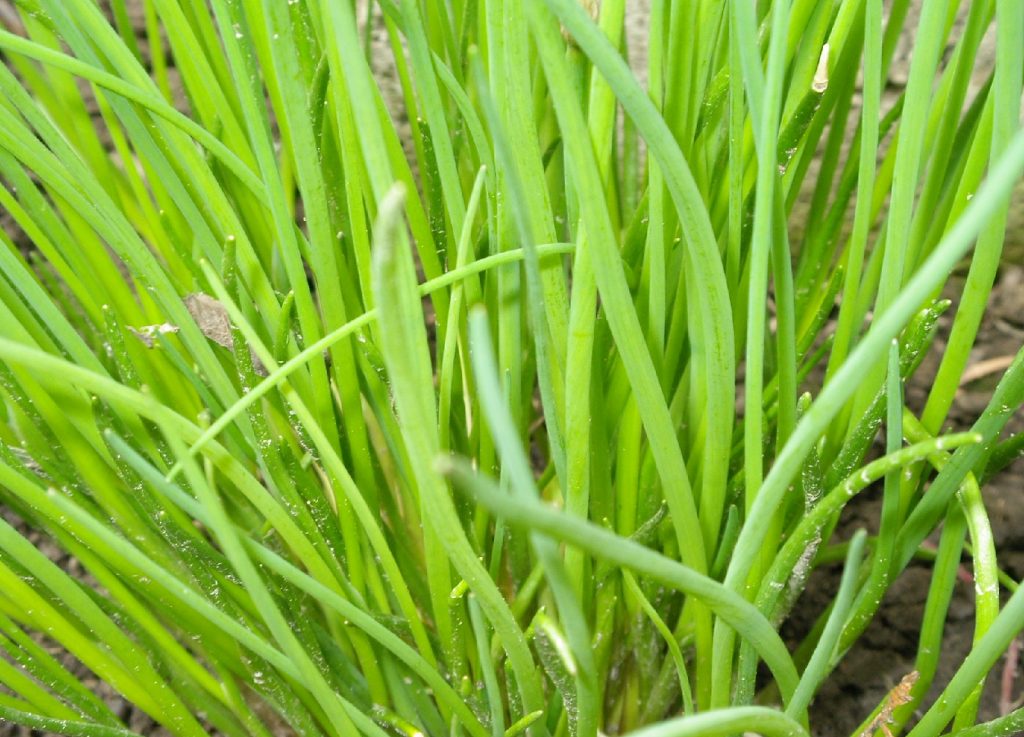
Beebalm
Bee populations are declining at an alarming rate. If you want to give your local bees a leg up and support blackberry production at the same time you can’t go wrong with beebalm. Also known as bergamot, this plant makes a fantastic blackberry companion plant because it attracts bees and other pollinating insects that can improve berry production.
Like blackberries, this perennial plant grows well in partial shade and moist soil. If you can, try growing your beebalm and blackberry bushes near your vegetable garden. This will encourage pollinating insects to visit all of your crops throughout the growing season.
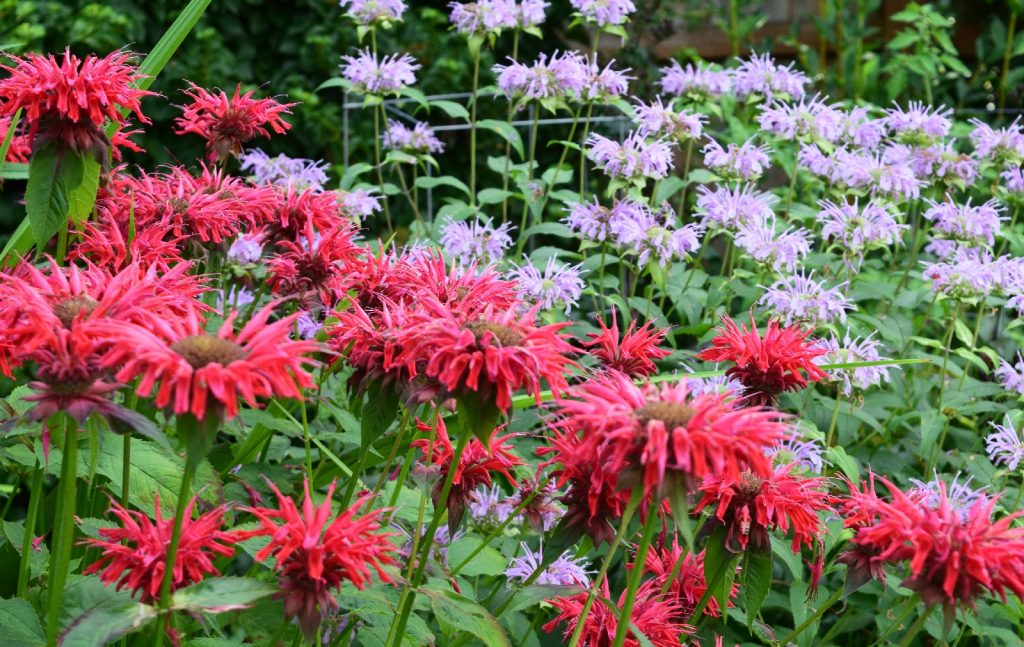
Beans
Whether you choose bush beans or climbing beans or peas, legumes are excellent for improving nitrogen-deficient soils. While you can certainly plant the beans of your choice in your garden along with your blackberries, we recommend growing them as a cover crop instead.
To do this, simply grow a row of beans, allow them to produce and die back, then plow them under. This restores valuable nutrients to the soil, priming the ground for your blackberry bushes. Growing beans as a cover crop can improve asparagus and cilantro production, too.
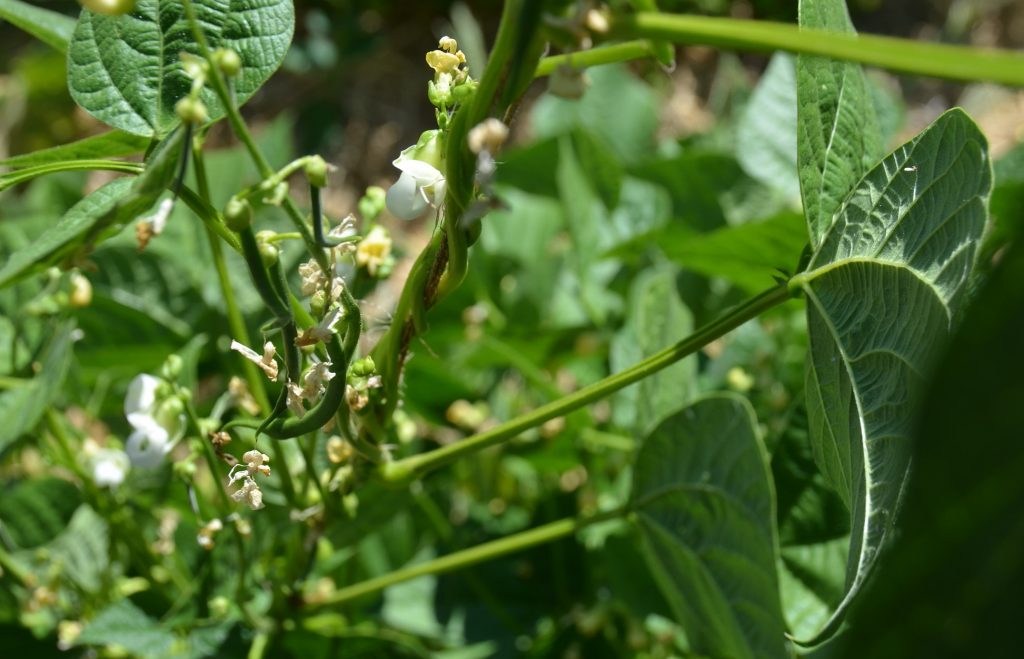
Sunflowers
Deer, rabbits, squirrels, and birds, can rob you of your blackberry crop. And if your region is going through a dry spell, these hungry foragers are more likely to strip your bushes of every blackberry they can find. Growing sunflowers as a trap crop can help keep these hungry pests away from your blackberries long enough for you to collect them first.
Sunflowers are also a fantastic source of nectar. Hummingbirds, butterflies, bees, and other pollinators are big fans of these open-faced flowers because they’re so easy to feed on. Sunflowers make excellent blackberry companion plants, just be sure to plant them in a spot where they receive six or more hours of sunlight a day.
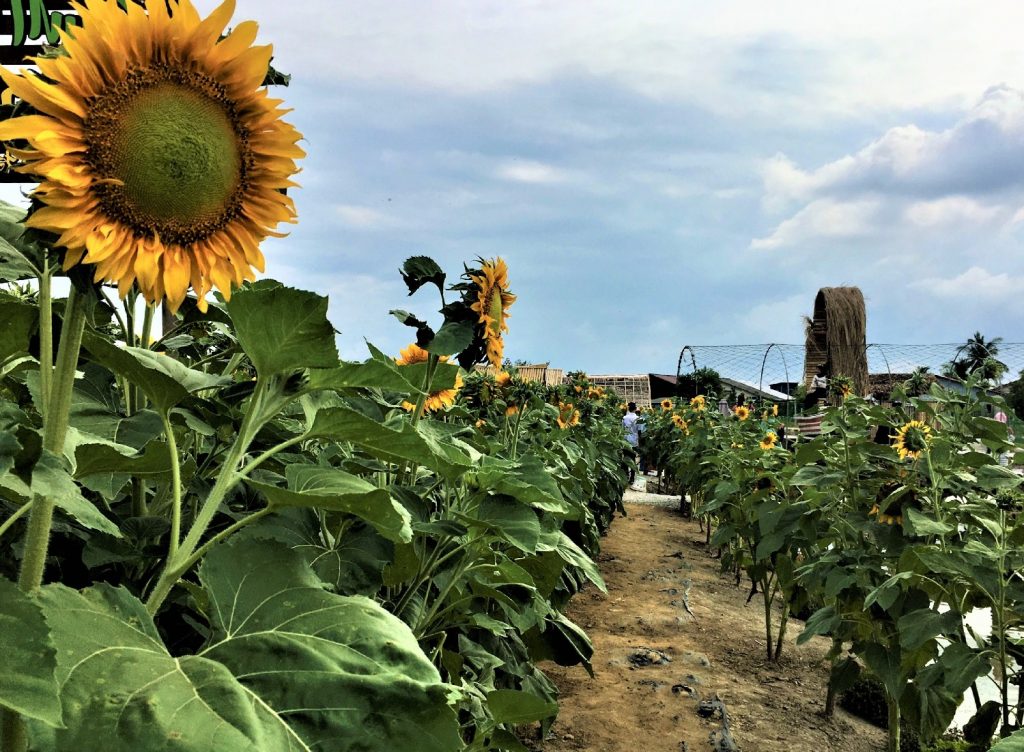
Hyssop
If you enjoy concocting your own herbal remedies, hyssop is the best blackberry companion plant for you. This flowering herb is used as an expectorant to treat sore throats, stuffy noses, and congestion. When grown with blackberries, they can both be harvested and used to produce a delicious immune system-enhancing syrup.
Hyssop grows tall purple flowers that catch the eye of many pollinators, including bees, butterflies, and hummingbirds. Growing hyssop among your blackberry brambles supports the pollination process, resulting in higher quantities of berries. This plant further supports blackberry growth by repelling blackberry predators, including cabbage moths and Japanese beetles.
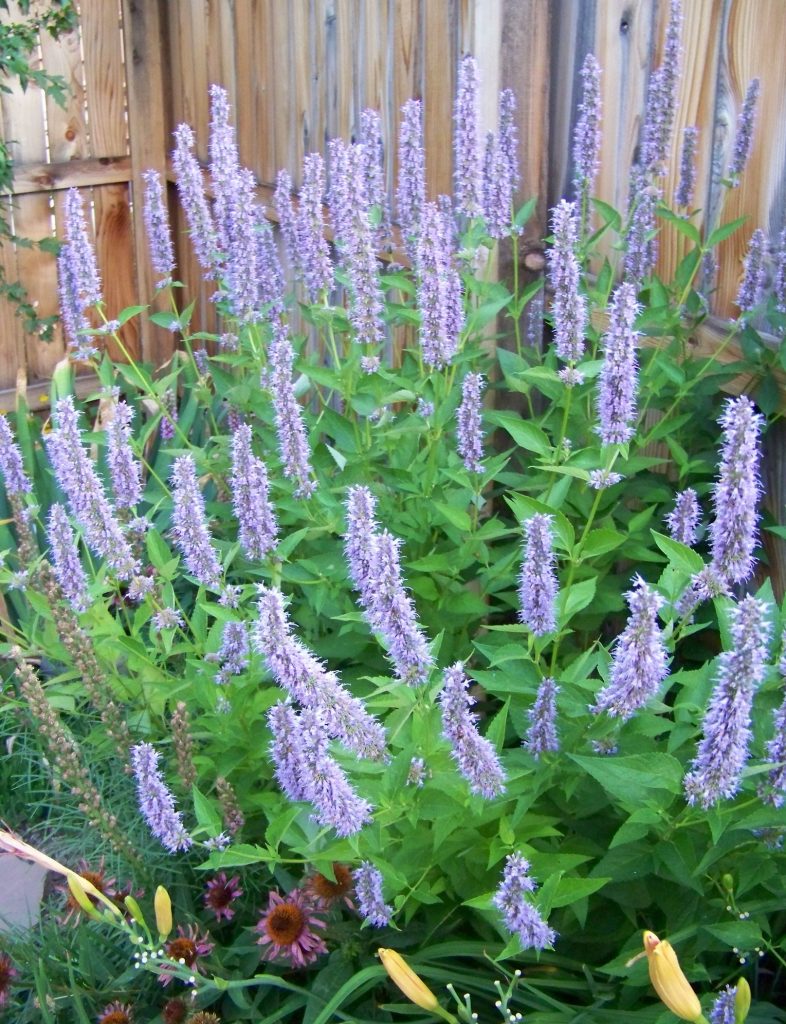
Mint
This fast-growing invasive herb can benefit blackberry plants tremendously. It thrives in moist, well-draining soil, and loves to fill in all of the shady spots low-growing blackberry vines produce. Mint acts as a living mulch to help the ground retain moisture. Its dead leaves also enrich the soil which improves blackberry production.
Mint produces dozens of small nectar-rich flowers. Bees love to check out these flowers and will peruse your blackberry bushes, too, if they’re nearby. So if you want to improve pollination rates in your blackberry patch, mint can lend you a hand.
Which plants should you avoid growing with blackberry bushes?
Blackberry bushes can survive in a variety of conditions with a variety of plants. However, some plants may compete with blackberry bushes for nutrients. And others may become infected with insects or diseases which can be transferred to your blackberry bushes. To make the most of your blackberry crop, be sure to avoid growing them near the following plants.
Asparagus
These are slow-growing veggies. It can take up to three years for asparagus seeds to germinate, and once they do, they require a ton of nutrients to grow. Because of their heavy mineral requirements, and because their deep growing roots will compete with other plants that have extensive root systems, we recommend avoiding using asparagus as a blackberry companion plant.
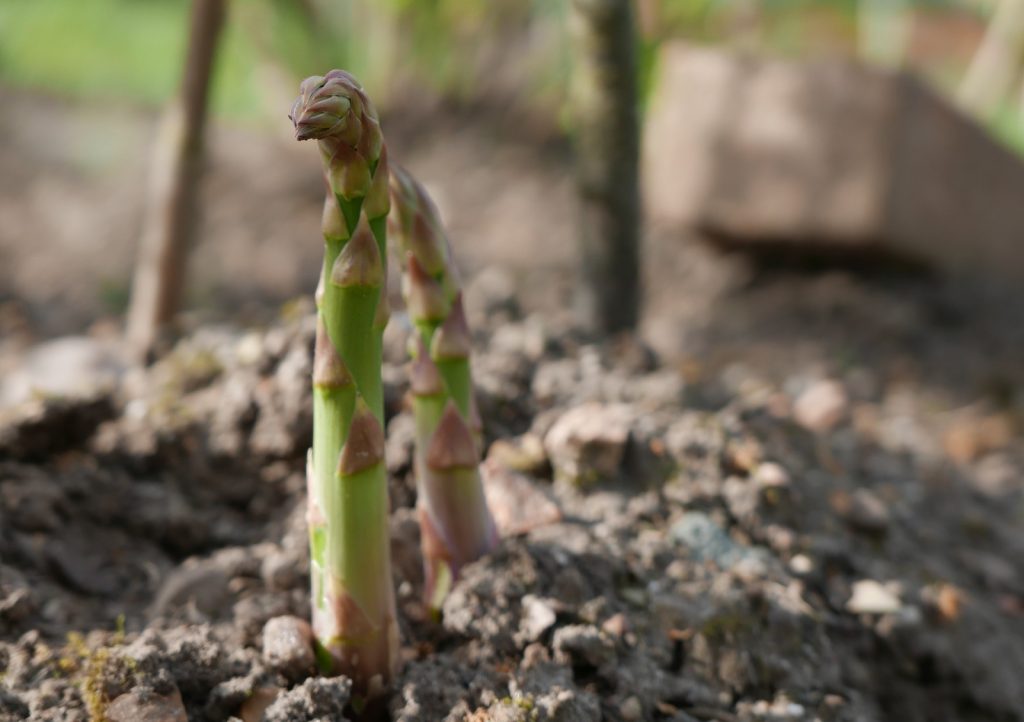
Carrots
Like asparagus, carrots have extensive nutrient requirements and deep roots. When planted next to blackberries, carrots may benefit from the bush’s ability to loosen compacted soils. But the blackberry plant will suffer from the resulting lack of minerals.
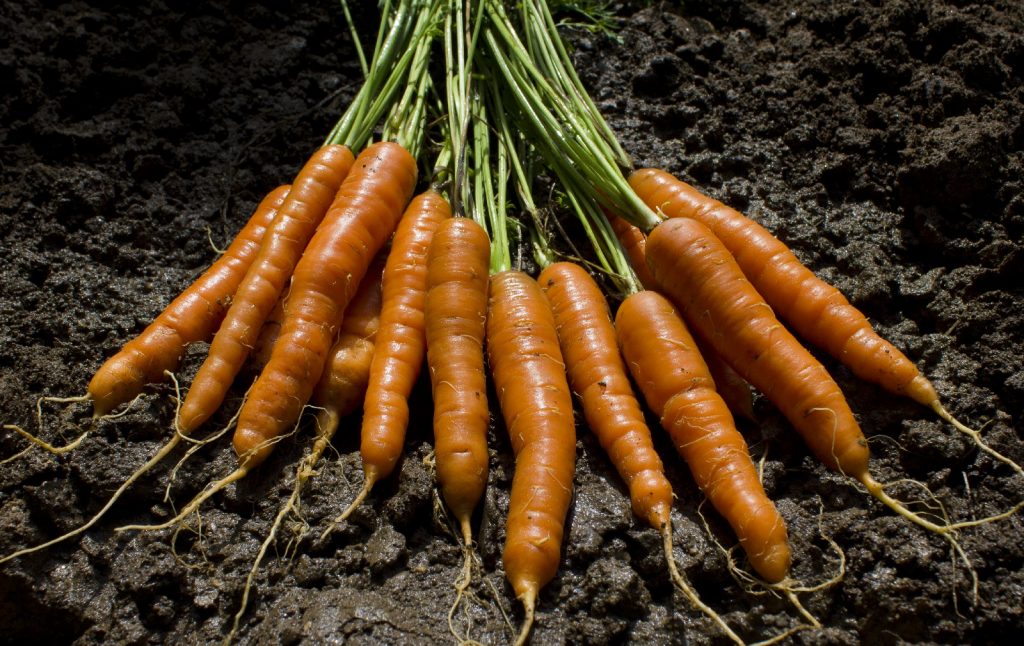
Nightshade Vegetables
Tomatoes, eggplants, potatoes, and peppers are all nightshade vegetables. Nightshades can become contaminated with fungal diseases which can quickly spread to blackberry bushes when they’re planted nearby. Blackberries, too, can transfer deadly diseases to nightshade vegetables, ruining your vegetable crop.
These plants are also preyed upon by the same insects. Armyworms, hornworms, stink bugs, caterpillars, and aphids will prey on both nightshades and blackberry bushes. So to prevent unwanted pests from jumping from one plant to the other, keep these two planted far apart.
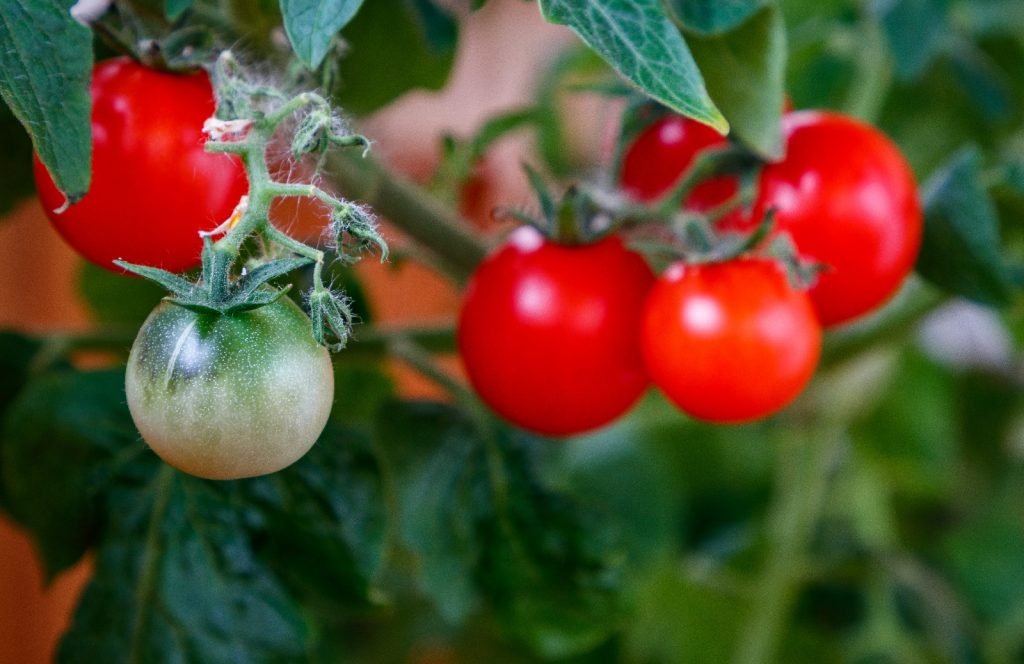
Raspberries
Raspberries and blackberries are delicious, and they taste even better together. But as tempting as it is to grow them both at once, they don’t grow best in the same patch. Blackberries and raspberries do share similar growing requirements. Unfortunately, they also share similar diseases. Sick raspberry bushes can infect blackberry bushes, and vice versa, leading to the deaths of both of these plants. So they’re best grown in separate containers at a distance of at least 100 feet apart.
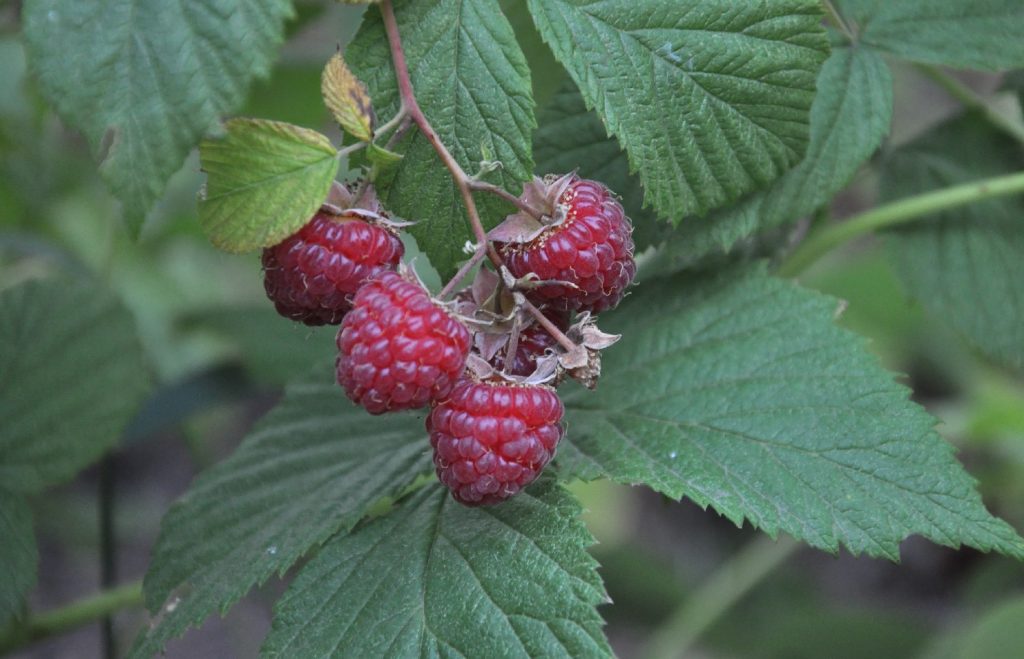
Is companion planting for blackberries worth it?
Blackberries are hardy bushes that get along well with many plants. Growing blackberry companion plants along with your blackberry bushes will support their health and improve berry production year after year.

Can I plant peppers near raspberries if peppers are in a pot?
Hi Thomas! Technically, you can plant peppers near raspberries (and blackberries, too!), whether the plants are in pots or directly in the soil. All of these plants share similar growing requirements, so that really isn’t an issue. However, because nightshade veggies like peppers are susceptible to similar pests and diseases as berries, we recommend growing these plants apart. But you could certainly try growing them as companions for a season and see how things go in your garden. Thanks so much for your question!